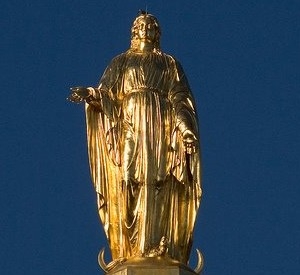The Power of a Coach That “Gets It”

It’s been no secret that Notre Dame has had a string of sub-par football coaches. For 14 years, the school has bounced back and forth like a pinball from one coach to the next. The last truly successful coach for the Irish was Lou Holtz. His career at Notre Dame spanned 11 seasons: a pretty respectable tenure. But, the most impressive thing about Holtz and his time at Notre Dame is that, outside of just a few seasons, he consistently had the Irish in the upper echelon of college football.
As Notre Dame embarks on it’s 2010 campaign with yet another new head coach, one has to wonder why the Irish have had such bad luck with their coaches since Holtz. What did Holtz have that Davie, Willingham, and Weis didn’t? Some point to X’s and O’s as the reason for a lackluster decade and a half on the Fighting Irish gridiron. Others point to a lack of elite recruiting or an ability to coach players who haven’t truly honed their technique and football “identity.”
Those are all valid points. But, perhaps the most glaring deficiency is one that is oftentimes overlooked—one that has nothing to do with what happens on Saturday, but every other day during the season and off-season. Perhaps the problem is right under our noses and has little to do with the nuances of schematics. Perhaps the reason Lou Holtz was the last truly successful coach at Notre Dame is that he was the last coach to truly “get” what it meant to coach at Notre Dame and instilled in his players what it meant to play at Notre Dame.
This school was founded on faith and a belief. This school means faith […] family […] a set of standards and commitment […]
At Notre Dame, there’s a spirit, something that’s within you.
Sure, a lot of what Holtz said during one pre-game speech to his players is a little on the “touchy-feely” side. But, it’s also a refreshing look at the gravity the Head Coach of Notre Dame has to impress upon his players on a consistent basis. Understanding what it means to coach or play football at Notre Dame is a lot more than understanding the national attention that comes with the job. In fact, when coaches talk about coaching at Notre Dame, they refer to Notre Dame as a “special” place, which means they understand that they are under intense scrutiny.
“Getting it” means more than understanding that being the coach of Notre Dame is a high-profile position. It’s an understanding of the University—its history, values, and commitment to excellence in all pursuits—and instilling that in your players and “making” them understand that as well. It’s an underemphasis on the self and my accomplishments and intellect and an increased emphasis on the team, the group, the family, and the common goal. It’s this element that is at the heart of the distinction.
As Kelly begins his first series of summer workouts with his team, he will continue to be compared to the coaches who came before him—namely Holtz, the coach who last won a National Title, and Weis, the coach who possessed a winning bravado, but failed to do the same. And while most comparisons will deal with coaching style, schematics, or other quantifiable data (some of it on this website), perhaps the best comparison shouldn’t deal with any of that.
According to Sports Illustrated, shortly after arriving at Notre Dame, Weis was quoted in addressing his players, “every game, you will have a decided schematic advantage.” It was his formula for winning games—sit in front of the press and rattle off offensive and defensive formations or talk about the nuances of a proper throwing motion. That was his bread and butter—outsmarting your opponent. The problem, however, was that he was outsmarting his own players. And even though Weis attended Notre Dame as a student, he still didn’t “get” it, oftentimes being described as the Ghost of Notre Dame—arriving early in the morning and leaving late, out of the view of the students and community.
This off-season, Brian Kelly made between 150 and 160 stops at various Alumni Clubs and other public events in order to reestablish the Notre Dame community that, over the past seven or eight months has been somewhat scattered and disconnected due to the discontent with Charlie Weis. Sure, it’s nice to grease the palms of people who make monetary contributions to Notre Dame on an annual basis. But more than that, Kelly understands that the most powerful Notre Dame community is one that is united under a common goal: not just the players and staff, but the school, its students, staff, alumni, and fans as well.
When asked at his opening press conference for the 2010 season what his message will be to his players this season, Kelly simply responded, “We’re here for Our Lady. We’re here to play for Notre Dame. There’s only one way to play this game: with great passion and spirit to play for your teammates, to play for our University […] and we will talk about that every single day. The rest takes care of itself.”
Finally, a coach who gets it.

